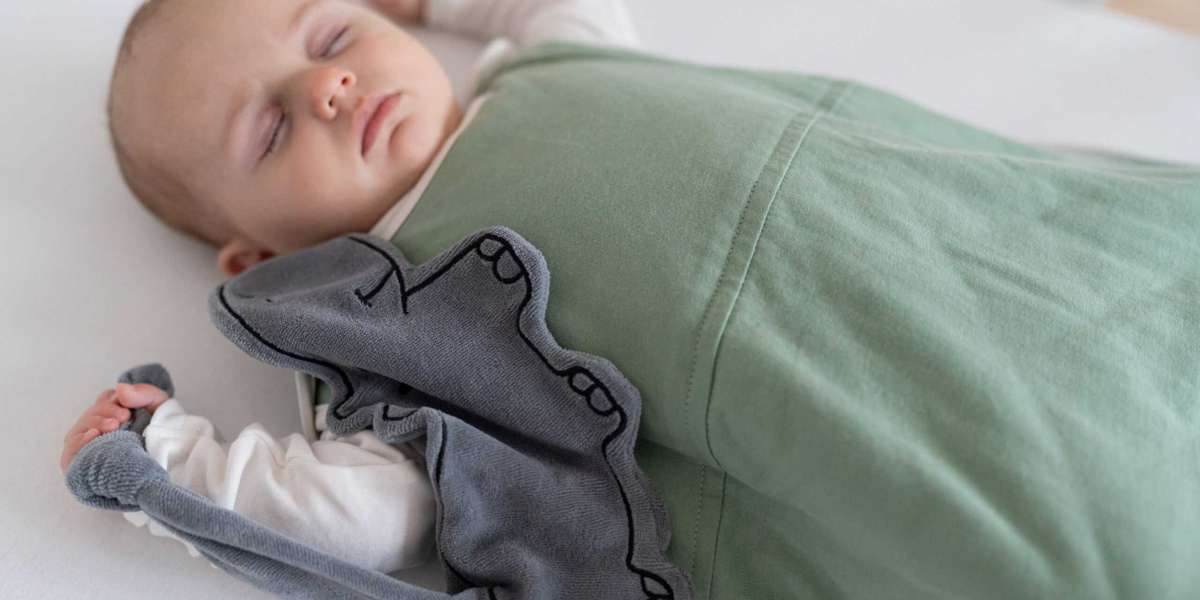What is the Safest Fabric for Babies?
“Children are the living messages we send to a time we will not see.” This quote by John W. Whitehead underscores the care and responsibility we carry as parents. And when it comes to our little ones, nothing feels more critical than choosing what touches their delicate skin. Did you know a baby’s skin is 30% thinner than an adult’s? That means every fiber matters.
From cozy swaddles to everyday onesies, the fabric you select isn't just about comfort—it’s about safety, breathability, and peace of mind. But with countless options on the market and labels that make your head spin, how do you know which is truly the safest? Let’s unravel the facts, debunk the myths, and help you choose the absolute best for your baby’s precious skin.
Why Fabric Choice Matters for Babies
Newborns spend most of their time wrapped in clothing, blankets, or swaddles. These fabrics come into direct contact with their skin for extended periods. Synthetic materials, harsh dyes, or chemically treated fabrics can irritate or even harm a baby’s skin. Additionally, some fabrics trap heat and moisture, creating an uncomfortable environment that may lead to rashes. Prioritizing natural, breathable materials ensures your baby stays comfortable and healthy.
Top Safe Fabrics for Babies
Organic Cotton Organic cotton is often hailed as the gold standard for baby fabrics. Unlike conventional cotton, it is grown without pesticides or harmful chemicals, reducing the risk of skin irritation. Organic cotton is also highly breathable, ensuring your baby stays cool and comfortable. From clothing to crib sheets, this versatile material is a safe choice for newborns.
Bamboo Fabric Bamboo-based fabrics are gaining popularity for their ultra-soft texture and hypoallergenic properties. They are naturally antibacterial and moisture-wicking, making them ideal for sensitive baby skin. Bamboo is also a sustainable option, as it grows quickly and requires fewer resources than cotton. Swaddles and sleepwear made from bamboo fabric provide a smooth, gentle touch for your little one.
Muslin Muslin is a lightweight, breathable fabric that’s perfect for swaddles, burp cloths, and blankets. Its loose weave allows for excellent airflow, reducing the risk of overheating. Muslin’s softness increases with each wash, making it a long-lasting choice for baby essentials. It’s particularly popular for summer months or warmer climates.
Merino Wool While wool might not be the first material you think of for babies, merino wool is an exception. It’s naturally temperature-regulating, keeping your baby warm in the winter and cool in the summer. Merino wool is also soft and gentle against the skin, unlike traditional wool, which can feel scratchy. Look for options labeled “superfine” or “extrafine” to ensure maximum comfort.
Linen Linen is another natural fabric that’s safe and effective for babies. It’s highly durable, breathable, and becomes softer with use. Linen is excellent for warm weather as it wicks away moisture and keeps your baby’s skin cool. Although slightly less common in baby products, it’s worth considering for items like bedding or summer clothing.
Fabrics to Avoid
Not all fabrics are created equal when it comes to baby safety. Steer clear of materials like polyester, nylon, and other synthetic blends. These fabrics often trap heat and moisture, creating an uncomfortable environment for your baby’s skin. Additionally, avoid clothing or blankets treated with flame retardants or harsh chemical finishes. Always check labels to ensure the absence of harmful substances.
Caring for Baby Fabrics
Even the safest fabric can irritate your baby’s skin if not cared for properly. Washing baby clothes and linens with a gentle, fragrance-free detergent is crucial. Avoid fabric softeners, as they can leave a residue that’s harsh on sensitive skin. Wash new items before their first use to remove any potential irritants from the manufacturing process.
Additional Tips for Keeping Baby Comfortable
Use a best newborn washcloth made of organic cotton or bamboo for bath time to ensure the gentlest care for your baby’s skin.
Dress your baby in layers to help regulate their temperature, especially during colder months.
Choose fabrics that align with your baby’s needs and seasonal conditions, prioritizing breathability and softness.
Conclusion
The fabrics you choose for your newborn are more than just a matter of style; they directly impact your baby’s health and comfort. By opting for natural, hypoallergenic materials like organic cotton, bamboo, or muslin, you can create a safe, nurturing environment for your little one. Remember, smooth both care and quality to provide the best for your baby’s sensitive skin. Investing in high-quality fabrics not only ensures your baby’s comfort but also offers peace of mind as a parent.











